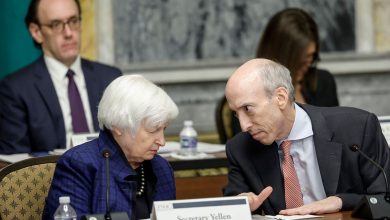Black homeownership remains stagnant — what that means for the racial wealth gap

[ad_1]
Black homeownership rates have been largely stagnant for decades, despite rising slightly in recent years, according to a new analysis from Apartment List.
That’s bad news for closing the racial wealth gap.
Currently, the Black homeownership rate is 44% — up from 40.8% in 2016, with the number of Black homeowners increasing by about 750,000 in a five-year span. Yet that’s still just below the Black homeownership rate seen in 1980, researchers at the rental-listing platform said in a report released Tuesday.
Black homeownership rates, which are highest in southeastern cities like Charleston, S.C., where 58.1% of Black households own their properties, also remain low in comparison to white homeownership rates. In the second quarter of 2022, the white homeownership rate was 75%, according to the Treasury Department.
“The racial wealth gap in the United States has persisted since Emancipation, and after narrowing for over a century following the end of slavery, it is widening again today,” the Apartment List researchers wrote. “Homeownership plays a major role. Owning a home has long been considered a reliable path to economic security and generational wealth. But a legacy of institutional racism has created cultural, political, and financial barriers that have suppressed Black homeownership for generations, highlighting the housing market’s role in the nation’s enduring wealth gap.”
That legacy includes redlining, the practice of denying loans to people looking to buy in predominantly Black and immigrant neighborhoods designated “risky,” and racially restrictive covenants, which kept homeowners from selling to Black people.
Yet even before the Fair Housing Act of 1968 made such race-based discrimination illegal, Black homeowners were resilient; the Black homeownership rate almost doubled from 23% in 1940 to 45% in 1980, the Apartment List analysis said.
Because of segregation and disinvestment in Black neighborhoods, though, that homeownership “served as a less reliable source of wealth creation,” according to Apartment List.
“Today, Black households own 8.0 percent of the nation’s homes, but these account for only 5.8 percent of the nation’s aggregate home value,” Apartment List said. “And the median home equity for Black homeowners is half that of the median for white homeowners.”
The prospect of homeownership is also looking bleaker for younger generations of Black buyers.
While Black homeownership rallied after World War II, that primarily benefited the Greatest and Silent generations. Baby boomers managed to keep pace — until the Great Recession hit. Now, at age 30, 17% of Black millennials own their homes, 10 percentage points lower than prior generations at the same age, Apartment List said.
“Starting with baby boomers, every generation of Black Americans has attained homeownership at a slower pace than the generation that preceded them,” Apartment List said.
Read next: How one Black family got its 40 acres — and turned them into intergenerational success
[ad_2]
Source link



